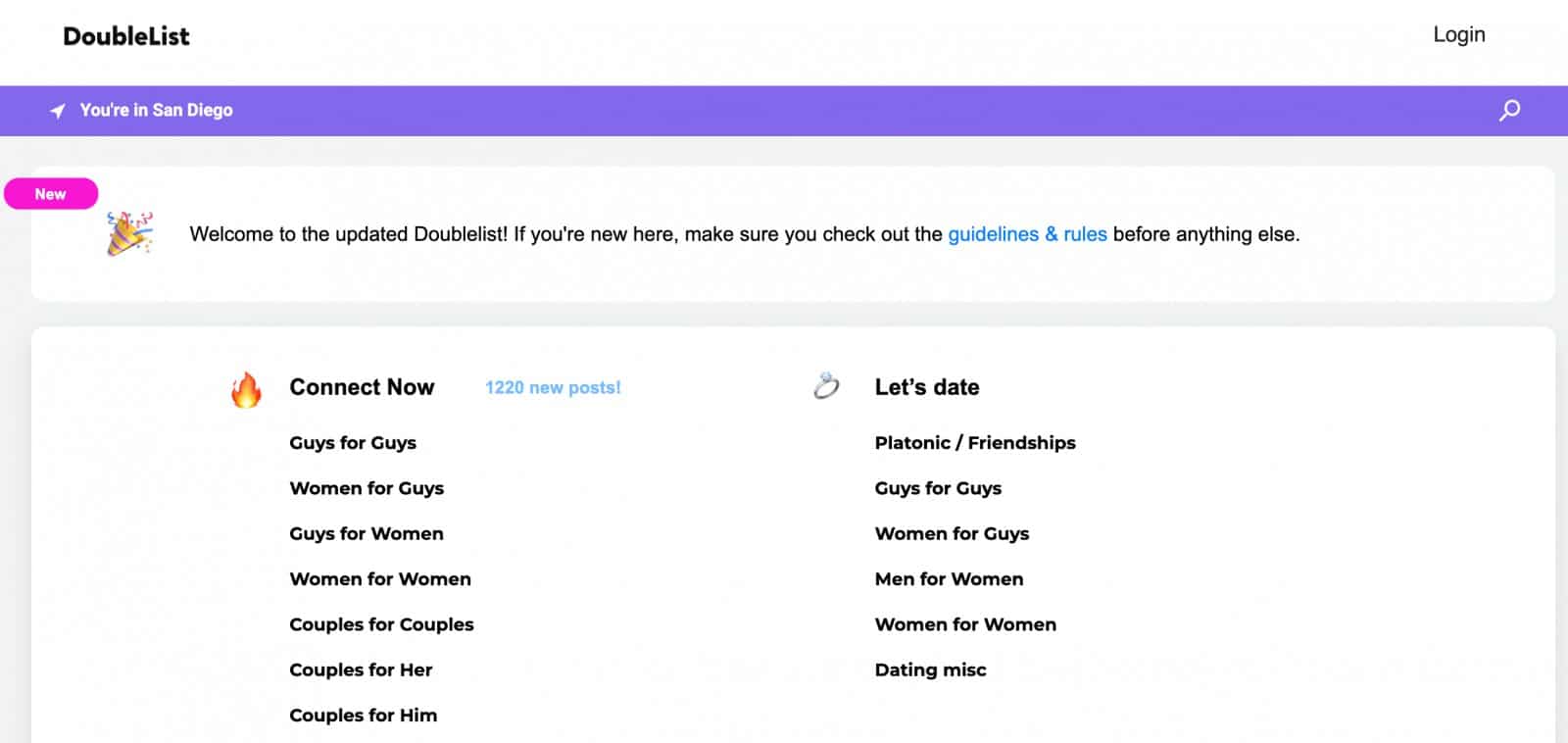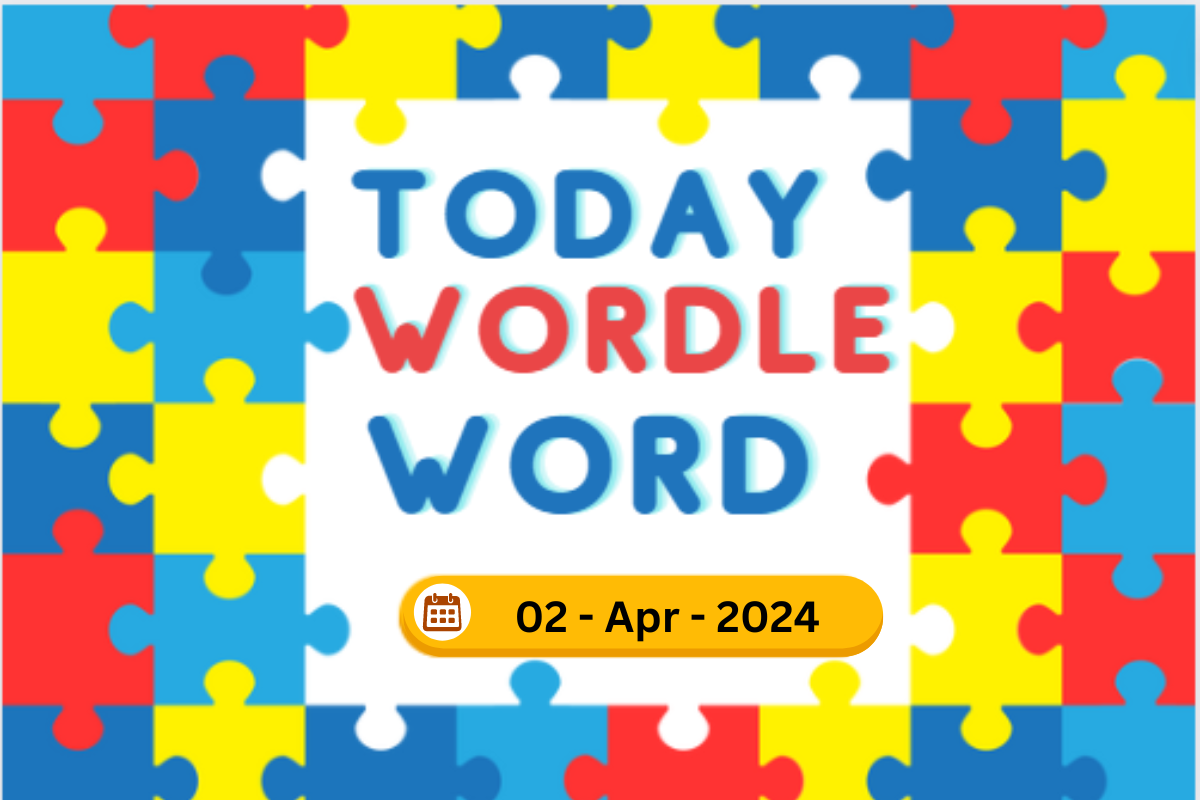DoubleList Atlantic City, a seemingly innocuous search term, opens a door to a complex world of online interactions and potential implications. Understanding the user intent behind this phrase requires careful consideration of various interpretations and associated platforms. This exploration delves into the potential meanings, associated risks, and alternative uses of “DoubleList Atlantic City,” providing a comprehensive overview for informed understanding.
We will examine the demographics of those searching for this term, analyzing their behavior and comparing it to similar searches in other locations. The investigation will also explore the online presence of this phrase, noting where it appears and how the context shapes its meaning. Finally, we will address potential risks and offer strategies for safe online practices.
Understanding “DoubleList Atlantic City”
The phrase “DoubleList Atlantic City” suggests a connection between the term “DoubleList” and the city of Atlantic City, New Jersey. Understanding its meaning requires exploring the possible interpretations of “DoubleList” and the context of its association with a specific geographic location. The user intent behind searching this phrase likely revolves around finding specific types of information or services available in Atlantic City.The ambiguity of “DoubleList” itself is key.
It’s not a commonly known term or established platform name. This necessitates exploring potential interpretations to understand the user’s search query. It could refer to a colloquialism, a mishearing or misspelling of an existing platform, or a niche service operating within Atlantic City. The user might be searching for duplicate listings, perhaps related to real estate, events, or classified ads, suggesting a need to compare or consolidate information.
Alternatively, it might indicate a platform offering two distinct types of listings, or a platform with a double-sided marketplace structure.
Possible Interpretations of “DoubleList”
The term “DoubleList” lacks a clear, universally understood meaning. Several interpretations are plausible, depending on the user’s context and intent. It could be a misspelling of a similar-sounding term, perhaps related to online classifieds or dating sites. It might also refer to a platform providing dual functionalities, such as both listings and reviews, or a system presenting two distinct categories of information.
Another possibility is that “DoubleList” is a colloquialism used within a specific community in Atlantic City, referring to a particular type of listing or service. For example, it could refer to a platform offering both residential and commercial property listings, or even a platform for finding both jobs and apartments. The absence of readily available information about a platform explicitly named “DoubleList” underscores the potential for a less formal, possibly local, usage of the term.
Websites or Platforms Potentially Associated with the Search
Given the ambiguity of “DoubleList,” identifying specific websites is challenging. However, the search could potentially lead users to various online platforms that offer listings in Atlantic City. These could include real estate websites (such as Zillow, Realtor.com, Trulia), classified advertisement sites (like Craigslist or Facebook Marketplace), event listing websites (like Eventbrite), or even local business directories. The user’s intention might be to find duplicate or overlapping listings on these platforms, comparing prices or details across multiple sources.
Alternatively, they may be looking for a specific platform that uses the term “DoubleList” informally or as a colloquialism within the Atlantic City area. Without more context, pinpointing the exact platform remains speculative.
User Intent Behind Searching “DoubleList Atlantic City”
Users searching for “DoubleList Atlantic City” likely seek specific information or services within Atlantic City. Their intent might involve finding duplicate listings to compare prices or options, discovering a niche platform with a specific naming convention, or even investigating a local colloquialism used to describe a particular listing service. The ambiguity of “DoubleList” suggests the user may be unsure of the precise platform name, relying on a less formal or widely known descriptor.
Enhance your insight with the methods and methods of craigslist millinocket maine.
This points to the possibility of a localized or community-specific service, rather than a large, established national platform. The user’s search reflects an attempt to find information through a less conventional search term, potentially indicating a less well-known or newly established service.
Exploring Related Search Terms
Understanding the search terms users employ when seeking services similar to those potentially offered on DoubleList Atlantic City is crucial for optimizing online visibility and understanding user needs. This involves identifying related s, analyzing their search volume, discerning user intent, and exploring potential associations with the primary search term. This analysis allows for a more comprehensive understanding of the online landscape and facilitates targeted marketing strategies.
Categorization of Related Search Terms
To effectively analyze related search terms, we can group them into semantically meaningful categories. This allows for a clearer picture of user needs and motivations. These categories can then inform the development of targeted content and advertising campaigns. For instance, searches might fall under categories focusing on specific services, geographic location refinements, or alternative platforms.
Related Search Terms Table
The following table Artikels several related search terms, estimated search volume, user intent, and potential associations with “DoubleList Atlantic City.” Search volume estimations are based on general trends and may vary depending on the specific time and platform.
| Related Term | Search Volume (Estimated) | User Intent | Potential Associations |
|---|---|---|---|
| Atlantic City adult services | Medium-High | Finding adult entertainment or escort services | Directly related; users seeking similar services to those potentially found on DoubleList. |
| Atlantic City dating sites | High | Finding romantic partners or casual dating opportunities | Indirectly related; users might explore alternative platforms if DoubleList doesn’t meet their needs. |
| Adult personals Atlantic City | Medium | Connecting with individuals for adult relationships | Similar to “Atlantic City adult services,” but potentially with a focus on personal connections rather than transactional services. |
| Meetup Atlantic City adults | Low-Medium | Finding social groups or events for adults | Tangentially related; users might be looking for social interaction, which could overlap with the intent behind some uses of DoubleList. |
| Classifieds Atlantic City | High | Finding various services or goods in Atlantic City | Broadly related; DoubleList might be categorized under this broader term, depending on its specific offerings. |
| DoubleList alternatives | Low-Medium | Finding alternative platforms for similar services | Users dissatisfied with DoubleList or seeking different features might use this search. |
Analyzing User Demographics and Behavior
Understanding the demographics and online behavior of individuals searching for “DoubleList Atlantic City” requires considering the nature of the platform and the location. DoubleList, while not explicitly an adult platform, is often associated with adult services and encounters. Therefore, the user base likely overlaps significantly with those seeking such services in the Atlantic City area.The search term itself suggests a proactive and potentially discreet approach to finding connections.
Users are not simply browsing; they are targeting a specific platform and location, indicating a degree of intent and perhaps a desire for anonymity.
Potential Demographic Profile
The demographic profile of users searching for “DoubleList Atlantic City” likely includes a range of ages, though a concentration might exist within the 25-55 age bracket. Income levels would likely vary, reflecting the diverse economic landscape of Atlantic City. Given the association with adult services, a higher proportion of male users compared to female users is a plausible assumption.
However, this is not an absolute certainty, and the platform likely attracts users across the gender spectrum. Educational attainment and marital status would also likely span a broad range, mirroring the overall population of Atlantic City.
Potential User Behaviors
Users searching for “DoubleList Atlantic City” likely exhibit behaviors indicative of seeking discreet connections. This could involve using incognito browsing, avoiding personal details in profiles, and utilizing the platform primarily for communication and arranging meetings rather than extensive online interaction. Many users may prioritize convenience and speed in connecting with potential partners, reflecting the often transient nature of tourism and seasonal residents in Atlantic City.
A high frequency of search queries during peak tourism seasons is also a likely behavioral pattern.
Comparison with Other Geographic Locations
Comparing “DoubleList Atlantic City” with similar searches in other locations reveals patterns related to tourism and population density. For example, searches for “DoubleList Las Vegas” might show higher volumes due to the city’s large tourist population and reputation for entertainment. Conversely, searches for “DoubleList [smaller town]” might show lower volumes reflecting a smaller potential user base. The specific language used might also vary; some locations might see more searches including terms like “escort” or “dating,” reflecting local customs and terminology.
Hypothetical User Persona
Based on the above analysis, a hypothetical user persona could be “Mark,” a 38-year-old male tourist visiting Atlantic City for a weekend getaway. Mark is single, works in finance, and is looking for a discreet and casual encounter. He uses incognito mode on his phone to search for “DoubleList Atlantic City,” prioritizing convenience and anonymity. He is comfortable using online platforms for this purpose and expects a degree of discretion from other users.
He’s likely less concerned with long-term relationships and more focused on a short-term connection during his stay in Atlantic City.
Investigating Online Presence
Understanding the online presence of “DoubleList Atlantic City” requires examining various platforms where such classified advertisements might appear. The nature of the phrase suggests a connection to adult entertainment services, and therefore, the search for information must consider the potential for explicit or illicit content. This investigation focuses on identifying platforms, examples of associated content, and how contextual factors influence interpretation.The online presence of “DoubleList Atlantic City,” or similar phrases, is likely fragmented and difficult to definitively track due to the nature of the service.
Many platforms actively work to remove such content, leading to a dynamic and constantly shifting landscape.
Online Platforms and Associated Content
The search for “DoubleList Atlantic City” might yield results across several online platforms, though the exact content and its visibility will depend on the platform’s policies and enforcement. Examples include search engines (Google, Bing, etc.), social media platforms (though unlikely to be directly advertised), and potentially adult-oriented websites or forums. However, direct mention of “DoubleList Atlantic City” might be infrequent due to the efforts of platform moderators to remove such content.
Instead, related search terms or veiled references might be more common. For example, a search might uncover discussions in online forums about alternative adult services in Atlantic City, or reviews of similar services operating under different names.
Contextual Influence on Interpretation
The context in which “DoubleList Atlantic City” appears significantly impacts its interpretation. If found on a legitimate review site, it might be part of a negative review, highlighting concerns about safety or legitimacy. If found on an adult entertainment website, it might be presented as an advertising link, though such links are often disguised or removed quickly due to platform regulations.
If discovered in an online forum, it might be part of a user discussion regarding local adult services, potentially involving user reviews or personal experiences. The meaning can vary widely based on the surrounding text and the platform itself. For example, a mention within a news article discussing illicit activities would have a far different connotation than a mention within an unrelated blog post.
Overall Online Presence and Visibility
The overall online presence of “DoubleList Atlantic City” is likely low in terms of direct, readily accessible mentions. The phrase itself is not a commonly used or widely recognized term, and the services it might refer to often operate under the radar to avoid legal repercussions and platform bans. However, indirect references, related search terms, or discussions within niche online communities might still reveal some information about the existence and nature of such services in Atlantic City.
The visibility is largely dependent on the methods used to search and the platforms examined.
Potential Risks and Implications
Searching for or engaging with content related to “DoubleList Atlantic City,” or similar platforms, carries significant risks. These platforms often host adult content and facilitate interactions that can have serious consequences for users. Understanding these risks is crucial for making informed decisions about online safety and well-being.The potential negative implications for users are multifaceted and can range from minor inconveniences to severe legal and personal repercussions.
Exposure to explicit or illegal content is a primary concern, especially for minors. Furthermore, interactions on such platforms can lead to scams, identity theft, harassment, and even physical danger if users meet in person. The anonymity often associated with these platforms can embolden harmful behavior, creating a climate of risk and uncertainty.
Potential for Exploitation and Abuse
Users, particularly those seeking casual encounters, may be vulnerable to exploitation and abuse. Predatory individuals may use these platforms to target vulnerable people, exploiting their trust and potentially leading to physical or emotional harm. The lack of robust verification systems on many such platforms contributes to this risk. For example, a user might believe they are interacting with someone of a specific age or gender, only to discover this information was false.
This deception can lead to a range of negative experiences, from disappointment to serious harm.
Risks of Illegal Activity
Some content found on platforms like DoubleList may be illegal, including child exploitation material or content related to human trafficking. Accessing or distributing such material carries severe legal penalties, including hefty fines and imprisonment. Furthermore, engaging in illegal activities facilitated through these platforms, such as prostitution or drug transactions, can result in criminal charges. The anonymity of online interactions does not provide protection from law enforcement investigations.
For example, law enforcement agencies often use online platforms to identify individuals involved in illegal activities.
Strategies for Mitigating Risks
Several strategies can help mitigate the risks associated with searching for or engaging with content related to “DoubleList Atlantic City.” Prioritizing personal safety and exercising caution are paramount. Avoiding interactions with strangers, especially in person, is crucial. Verifying the identities of individuals encountered online should be attempted using multiple sources, though complete verification is often impossible. Reporting any suspicious or illegal activity to the appropriate authorities is also vital in ensuring online safety.
Finally, using strong passwords and employing robust antivirus software can help protect against malware and other online threats.
Recommendations for Safe Online Practices
The following recommendations are crucial for safe online practices when dealing with potentially risky content or platforms:
- Never share personal information, such as your address or financial details, with individuals met online.
- Be wary of individuals who seem too good to be true or who pressure you into doing something you’re uncomfortable with.
- Avoid meeting people you’ve met online in person, especially in secluded locations. If you do decide to meet someone, do so in a public place and let a friend or family member know your plans.
- Report any suspicious or illegal activity to the appropriate authorities.
- Use strong passwords and enable two-factor authentication where possible.
- Install and regularly update antivirus software on your devices.
- Be mindful of the content you access and share online; illegal content can have severe consequences.
Visual Representation of Data (Hypothetical): Doublelist Atlantic City

Visual representations can effectively communicate complex data related to search frequency and geographic distribution for “DoubleList Atlantic City.” The following hypothetical visualizations illustrate potential insights.
Search Frequency Over Time
A line graph would effectively display the frequency of “DoubleList Atlantic City” searches over a specified period, perhaps a year. The x-axis would represent time (e.g., months or weeks), and the y-axis would represent the number of searches. Data points would show the search volume for each time interval. For example, a peak in searches during the summer months might reflect increased tourism in Atlantic City, while lower search volumes during the winter could indicate a seasonal downturn.
A noticeable spike could indicate a news event or a marketing campaign related to DoubleList or Atlantic City. The overall trend line would show whether searches are increasing, decreasing, or remaining relatively stable over time.
Geographic Distribution of Searches
A heatmap would be a suitable visual representation for showing the geographic distribution of searches for “DoubleList Atlantic City.” This map would overlay a geographical representation of the Atlantic City area and surrounding regions. The color intensity of each area would correspond to the search frequency. Darker shades of red or purple would indicate higher search frequency, while lighter shades, or even white, would indicate lower search frequency.
For example, a cluster of high search frequency around the Atlantic City boardwalk area would be expected, indicating a higher concentration of searches originating from within the city itself. Conversely, areas further away from Atlantic City would likely show lower search frequencies, gradually decreasing in intensity as the distance from the city increases. This visualization could also help identify patterns in search origins, perhaps revealing that searches are concentrated in specific states or regions.
In conclusion, “DoubleList Atlantic City” presents a multifaceted subject requiring careful consideration. While seemingly simple, the term’s ambiguity allows for various interpretations and potential uses, highlighting the need for responsible online engagement. By understanding the user intent, associated risks, and alternative interpretations, individuals can navigate this online landscape more safely and effectively. Further research into the evolving nature of online interactions and search trends is crucial for staying informed and mitigating potential risks.



